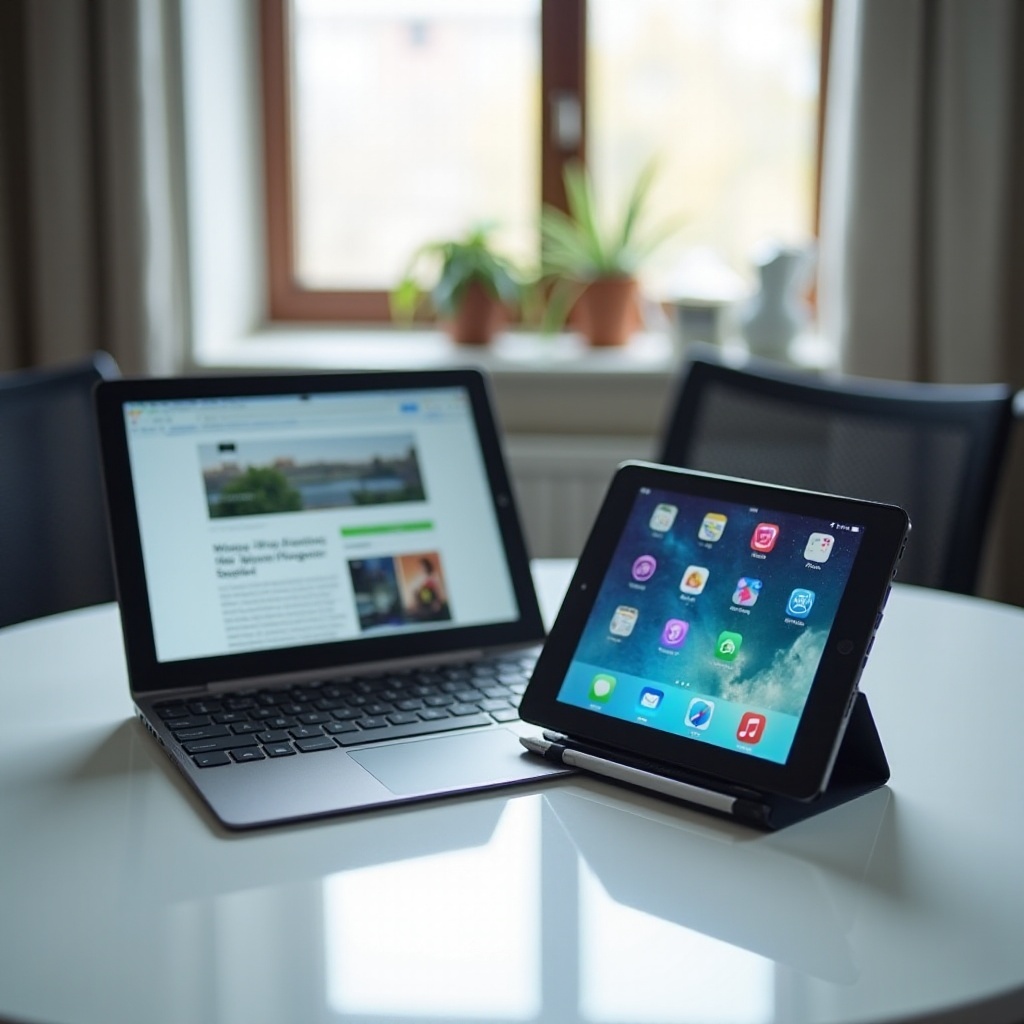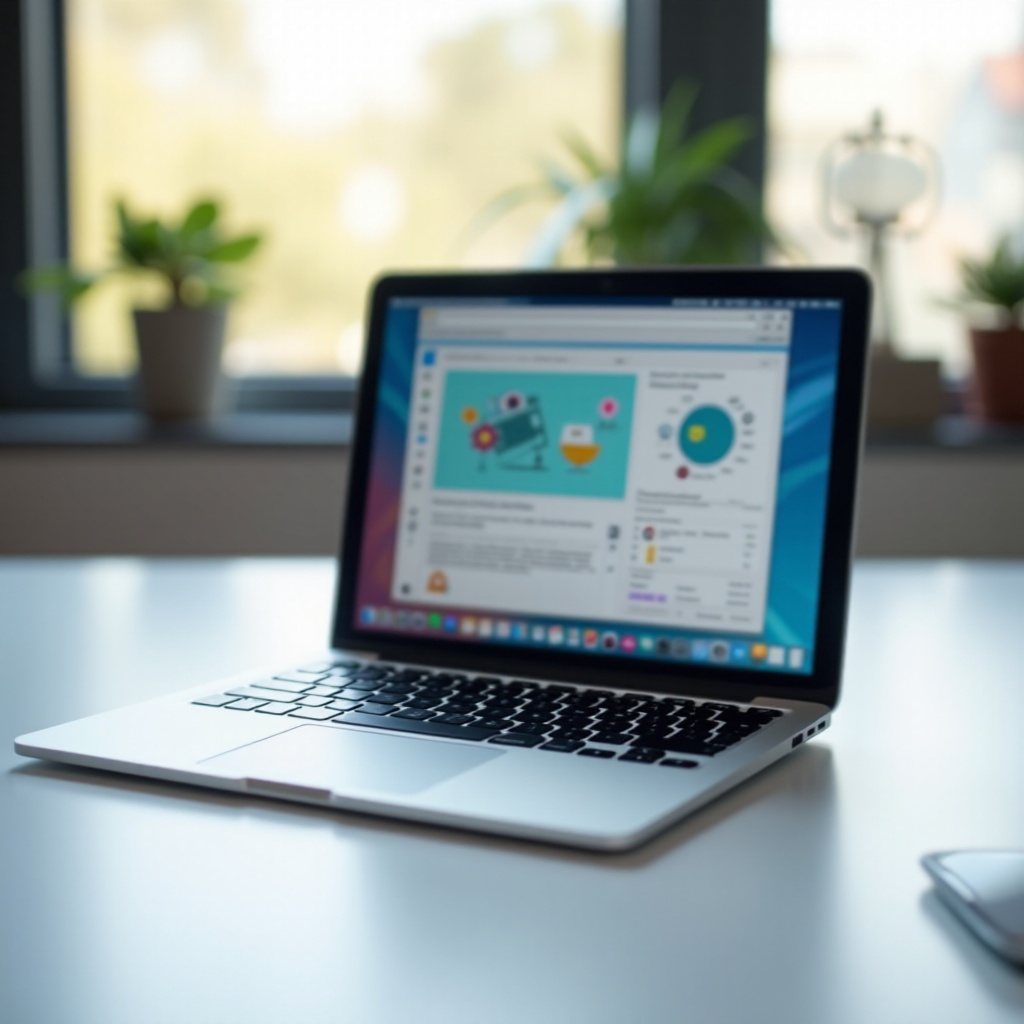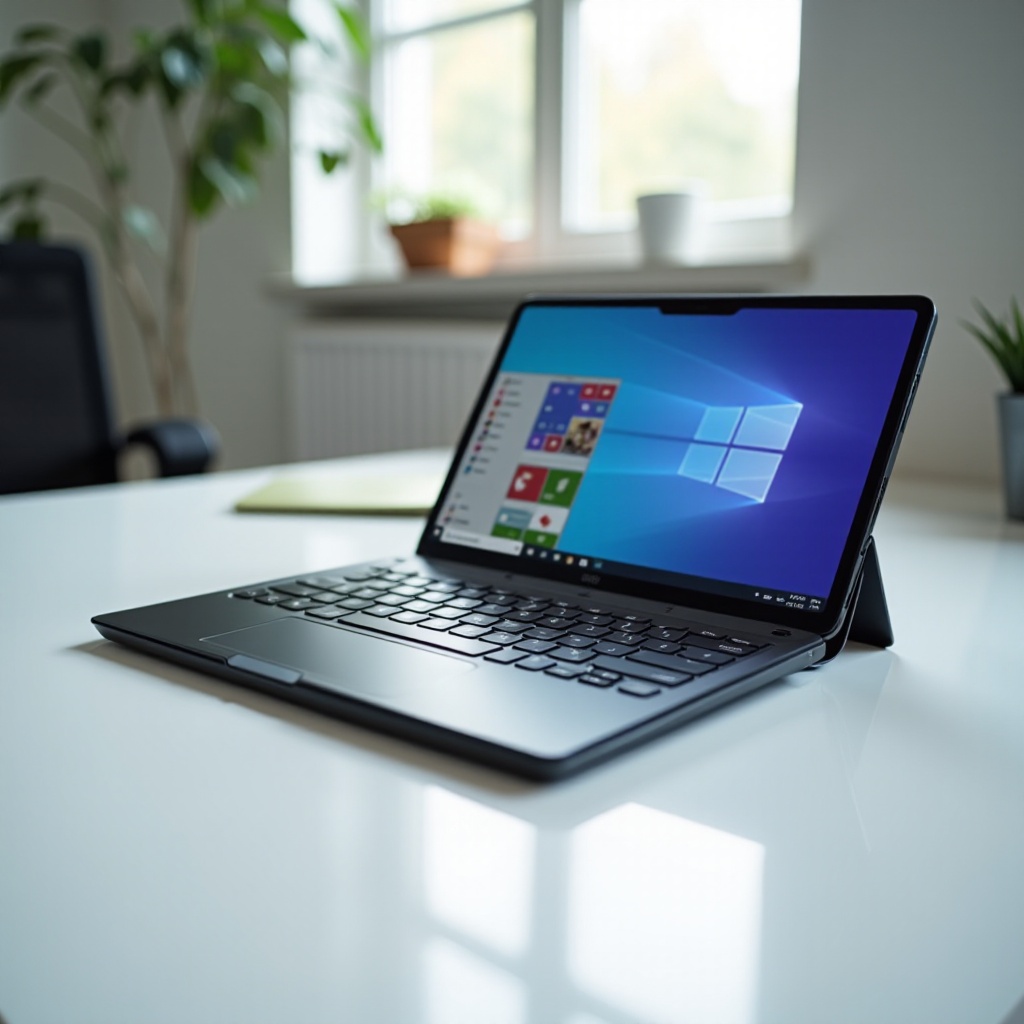Introduction
Choosing between a netbook and a tablet can be tricky since both serve as portable computing solutions but in different ways. While they can handle similar tasks, their hardware, software, and usability features set them apart. Understanding these differences is crucial for making an informed decision about which device suits your needs.

What is a Netbook?
A netbook is a small, lightweight laptop designed mainly for tasks like browsing the internet, checking emails, and using web-based applications. Originally popular around 2007, netbooks were considered an affordable alternative to full-sized laptops. Netbooks typically feature smaller screens, usually around 10 to 12 inches, and come with physical keyboards to facilitate easier typing.
Despite their compact size, netbooks often include various ports like USB and HDMI, allowing for extended connectivity options. Their hardware is generally less powerful than traditional laptops, making them more suitable for non-intensive tasks. Over the years, netbooks have seen diminished popularity, largely due to the rise of more powerful ultrabooks and hybrid laptop-tablet devices.
However, they still find their niche among users who need a device primarily for lightweight computing tasks and where portability is a priority.

What is a Tablet?
A tablet is a mobile device with a touch screen interface, typically ranging from 7 to 12 inches in size. Unlike netbooks, tablets do not usually come with physical keyboards, although external keyboards can often be connected. The main selling point of tablets is their touchscreen functionality, making them incredibly user-friendly for tasks that benefit from touch input, such as browsing, reading, and multimedia consumption.
Tablets run on mobile operating systems like Android and iOS, which are designed for efficiency in various applications. Given their sleek and portable design, tablets are highly favored in scenarios where mobility and ease of use are essential. Tablets are designed to be versatile, often featuring cameras, various sensors, and high-resolution displays suited for multimedia.
From reading eBooks to streaming video content, tablets offer a comprehensive media experience that netbooks can’t match.

Hardware and Performance Comparison
Comparing the hardware and performance of netbooks and tablets reveals significant differences. Netbooks typically run on low-powered processors like Intel Atom or Celeron. These processors can handle basic computing tasks but struggle with more demanding applications. They usually have limited RAM, often between 2GB to 4GB, which further caps their performance capabilities. Storage options are also modest, generally comprising SSDs ranging from 32GB to 128GB.
On the flip side, tablets often use ARM-based processors, which are optimized for battery life and efficiency. Higher-end tablets come equipped with powerful processors that can rival those found in low-end laptops. Many tablets now offer up to 6GB or even 8GB of RAM, making them quite capable for multitasking.
From a performance standpoint, if your tasks involve higher processing requirements like photo editing or running multiple applications simultaneously, a tablet may offer superior performance. While neither device can compare to full-fledged laptops or desktops, each has its own strengths in hardware capabilities.
Operating Systems and Software Compatibility
Operating systems (OS) are another area where netbooks and tablets differ significantly. Netbooks have traditionally run various versions of Windows or lightweight Linux distributions. This makes them compatible with many traditional desktop applications, including the full versions of Microsoft Office and other legacy software.
Tablets typically run mobile operating systems: iOS for Apple iPads and Android for most other tablets. These mobile OS renders a wide array of applications that are available through their respective app stores. However, the software options available for tablets can be more limited when compared to a netbook running a desktop OS.
That said, some tablets, like the iPad Pro, come with robust app ecosystems that are increasingly designed for productivity. Software like Apple’s iWork suite or Google’s productivity apps can go a long way to making a tablet a viable option for many professional tasks.
Form Factor and Usability
When it comes to form factor and usability, netbooks and tablets cater to different user needs. Netbooks come with a physical keyboard and a common clamshell design, making them easier for extended typing. This design is especially beneficial for tasks that require substantial text input, like writing documents or emails.
Tablets are primarily designed around a touchscreen interface, making them incredibly intuitive and easy to use for various tasks, including web browsing, reading, and gaming. The lack of a physical keyboard can be mitigated by connecting a Bluetooth keyboard, though the experience is not as seamless as using a netbook.
The form factor also influences portability. Tablets are generally thinner and lighter compared to netbooks, making them easier to carry around. If you require a device that you can use primarily with touch and where typing is secondary, a tablet is more convenient.
Connectivity and Multimedia
Connectivity options differ between netbooks and tablets. Netbooks come with several ports, including USB, HDMI, and often an Ethernet port. This range of connectivity options makes them better suited for connecting multiple external devices and peripherals.
Tablets, however, have limited physical connectivity options. Most come with a single port for charging and data transfer, like USB-C. That said, many tablets support wireless connectivity options like Bluetooth and Wi-Fi, and some even come with cellular connectivity, making them more versatile for on-the-go internet access.
For multimedia experiences, tablets usually excel with their high-resolution displays, better speakers, and often better cameras. Netbooks lag behind in this department, as their primary feature set is designed for productivity rather than multimedia consumption.
Cost and Value Proposition
In terms of cost, netbooks have traditionally been more affordable. Their lower hardware capabilities and the use of older technologies contribute to a lower price point, making them an attractive option for budget-conscious buyers.
Tablets cover a wide price spectrum, from budget models to high-end devices like the iPad Pro, which can cost as much as a high-end laptop. However, the features and capabilities of tablets often provide better value in terms of display quality, camera functionality, and multimedia capabilities.
When considering value, think about what you need the device for. If your primary need is basic productivity at a lower cost, a netbook may suit you best. For a more versatile device that excels in both productivity and multimedia, a capable tablet may be a better investment.
Conclusion
Choosing between a netbook and a tablet ultimately boils down to your individual needs. Netbooks offer the familiarity of a laptop experience with a physical keyboard and broad software compatibility. Tablets, on the other hand, shine in mobility, multimedia, and user-friendly touch interfaces. By considering hardware, software, usability, connectivity, and cost, you can make an informed decision about which device is right for you.
Frequently Asked Questions
What are the main differences between a netbook and a tablet?
Netbooks have physical keyboards and run desktop operating systems, while tablets use touchscreen interfaces and mobile OS. Netbooks excel in basic productivity and connectivity, while tablets offer superior mobility and multimedia experiences.
Which is better suited for productivity tasks, a netbook or a tablet?
Netbooks are generally better for productivity tasks requiring extensive typing due to their physical keyboards. However, high-end tablets with external keyboards can also be very effective for productivity.
Are netbooks still relevant in 2024?
While their popularity has waned, netbooks are still relevant for users who need affordable, lightweight devices for basic computing tasks.